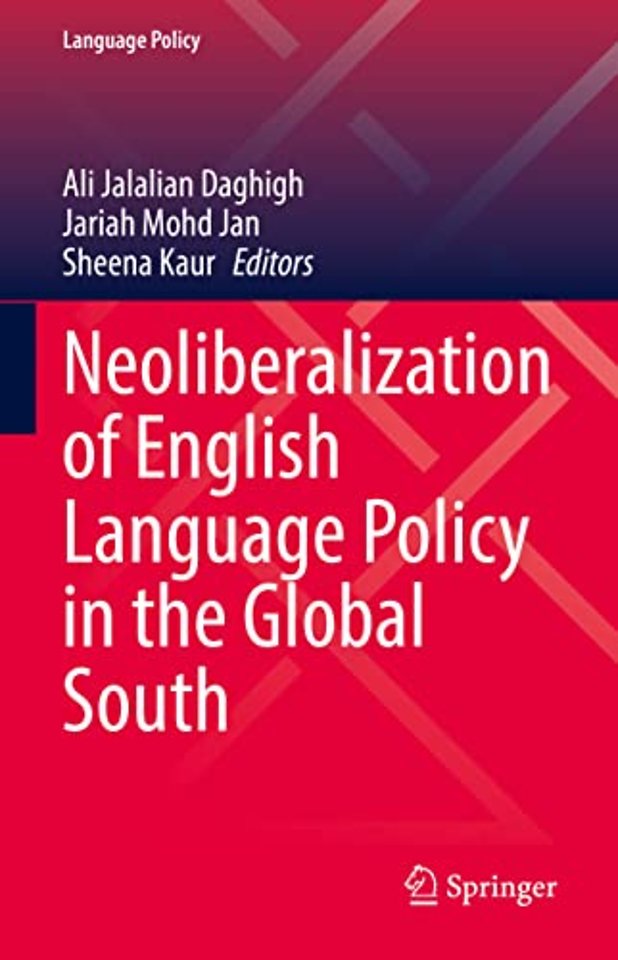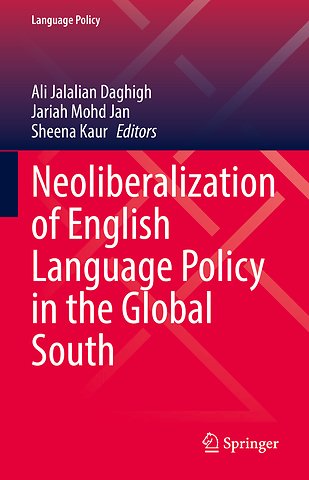Neoliberalization of English Language Policy in the Global South
Samenvatting
This book investigates different ways in which neoliberal language and teaching policies have influenced the English language in global south countries across Asia, Africa and Latin America. Through the three main sub themes covered by the book, namely Neoliberalism and English Language Teaching Policies, Neoliberalism Ideology as in English Language Teaching Materials, and Experiences of Neoliberal Subjects, it investigates various aspects and means through which neoliberalism is realized in a variety of contexts.Through the first subtheme the volume covers the English language education policies of Chile, Bangladesh, India, and Morocco. The second sub theme concerns how different neoliberal values such as consumerism, entrepreneurship, and individualism are localized and constructed in the locally developed English language materials of Thailand, Taiwan, Malaysia, and Vietnam. The third sub theme includes studies on the impact of neoliberalization of English in relation to Colombian, Brazilian, and Pakistani stakeholders.
This book is a valuable resource for academics, postgraduate students, researchers, policy makers, educators, and practitioners who are interested in neoliberalism in English language.

